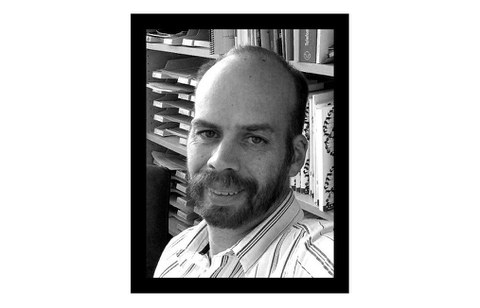Sep 02, 2019
Sudden death of Prof. Thomas Schmidt leaves TUD speechless
The TU Dresden mourns the loss of Prof. Thomas Schmidt (*1963 in Ferchland), who was unexpectedly killed in a tragic traffic accident on 1st August 2019.
Thomas Schmidt received his doctorate from the Martin Luther University Halle-Wittenberg in 1991. After completing a one-year post-doctorate in Halle, he continued his research at the John Innes Centre Norwich (England) in the laboratory of Prof. Pat Heslop-Harrison, with whom he was in close contact throughout his life. In 1996, he became head of the Molecular Cytogenetics work group at Kiel University, received the renowned BioFuture Award in 1998, and completed his habilitation in 1999. In 2003, he was appointed to the Chair of Plant Cell and Molecular Biology at TU Dresden.
Thomas Schmidt was one of the pioneers of chromosome analysis, particularly in crops. His research focused on the structure, evolution and chromosomal dynamics of repetitive DNA sequences using his optimised fluorescence in situ hybridisation technique. He was one of the world's leading experts in this field and has been actively conducting research in the laboratory until his untimely death. At the beginning of this year, he solved the mystery of the genetic origins of saffron and was thrilled about the overwhelming public response. In his lectures, he introduced students to many aspects of modern plant genome analysis and worked at the Faculty of Biology as Dean of Studies and Academic Advisor for many years.
Thomas Schmidt had a strong influence on the German research landscape in the field of agricultural crops, with a focus on sugar beets and potatoes, but also on many other economically important species, and supported the Society for Plant Breeding for many years. His drive for scientific innovation has led to numerous joint projects with academic institutions and industrial partners and resulted in numerous high-ranking publications.
Thomas Schmidt was highly appreciated by his employees and cooperation partners for his structured way of working, his ability to make sound decisions, his diligence as well as his calm and collected demeanour. Many long-standing scientific relationships show his profound loyalty to his colleagues.
TU Dresden has lost an internationally recognised researcher and a respected and experienced group leader. We will miss him as a scholar, colleague and mentor, and will always remember him fondly.
Thomas Schmidt is survived by his wife and two sons. Our deepest condolences go to his family during these difficult times.

